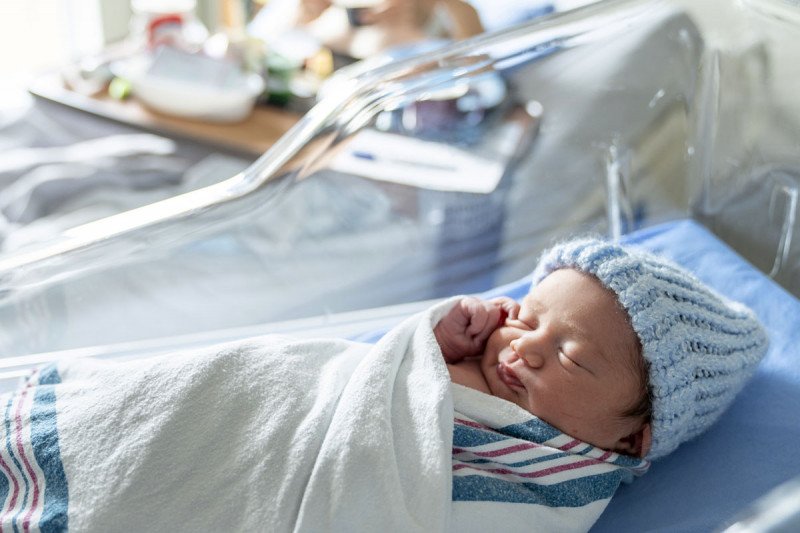
There is evidence that COVID-19 infection increases the risk of severe complications for people who are pregnant and their babies. It’s important to know that COVID-19 vaccines are safe and effective.
Deborah Goldfrank, Head of General Gynecology at MSK, explains what to know about the safety and effectiveness of the vaccines for people who are pregnant, breastfeeding or planning to have children. Here is evidence COVID-19 infections especially threaten the health of pregnant people and their babies.
How do doctors know the vaccines are safe for pregnant women?
There is strong evidence that the vaccines are safe and effective for pregnant women.
- A study published in January 2022 showed that vaccinated women were at no greater risk of delivering their babies prematurely or at a low birth weight, compared with women who were unvaccinated.
- An August 2021 study showed no increased risk for miscarriage for people who received the mRNA vaccine during the first 20 weeks of gestation.
- A study in June 2021 in the New England Journal of Medicine found no safety concerns among more than 35,000 pregnant people who received the Pfizer-BioNTech COVID-19 vaccine (Comirnaty®) or Moderna COVID-19 vaccine (Spikevax™).
The American College of Obstetricians and Gynecologists issued a statement emphasizing that “all eligible persons […] including pregnant and lactating individuals, receive a COVID-19 vaccine or vaccine series.” The Society for Maternal Fetal Medicine also encourages people who are pregnant or breastfeeding to get vaccinated.
How is COVID-19 more dangerous for people who are pregnant?
According to the CDC, people who are pregnant and contract COVID-19 are at higher risk of serious complications, including being admitted to the ICU, needing a breathing tube, and even death. They may also be at higher risk of adverse pregnancy outcomes.
- Research published January 2022 in Nature Medicine indicates that unvaccinated pregnant individuals with COVID-19 later in pregnancy are at increased risk for fetal and newborn death. This study, which evaluated more than 144,000 pregnancies in Scotland from March 2020 to October 2021, found that the risk for fetal or newborn death was higher for unvaccinated pregnant individuals even compared with vaccinated pregnant individuals who had COVID-19 infections at the same stage of pregnancy.
- In November 2021, the CDC released new data on more than 1.2 million hospital deliveries in the US from March 2020 to September 2021. The study showed that women with COVID-19 at the time of delivery were at higher risk for stillbirth. When the Delta variant of COVID-19 became more common, the risk for stillbirth was even higher.
Do the vaccines protect both pregnant women and their babies?
Emerging research shows pregnant women who are vaccinated not only protect themselves but also their babies.
Pregnant women who received the Pfizer-BioNTech and Moderna vaccines had COVID-19 antibodies in their umbilical cord blood and breast milk, according to the Journal of Obstetrics and Gynecology. Similar findings have been reported in other medical publications, too. This research offers encouraging evidence that some of a mother’s immunity can be passed along to the baby before and after they are born.
This research also builds on a previous study published in JAMA Pediatrics in January 2021 that found pregnant women who have recovered from COVID-19 can pass along their immunity. The more recent study found more antibodies present in women who had been vaccinated against COVID-19 than in women who had recovered from COVID-19.
In addition, this research found the vaccine is equally effective for women who are pregnant compared to those who are not. Antibody levels following vaccination were the same in pregnant and lactating women compared to those who weren’t pregnant, the study says.
Can COVID-19 vaccines cause infertility?
Despite alarming rumors spreading on social media, there is no data suggesting that COVID-19 vaccination impacts fertility. The approved COVID-19 vaccines do not contain live virus. They do not interact with or alter your DNA. According to fertility specialists, there is no evidence that vaccines increase the risk of infertility, first or second trimester miscarriages, stillbirth, or any birth defects.
Furthermore, because pregnant people are at greater risk of developing severe COVID-19, vaccination is important protection for people who are trying to get pregnant.
January 14, 2022
Additional Resources
- Pfizer-BioNTech (Comirnaty®) COVID-19 Vaccine Fact Sheet for people age 6 months through 4 years
- Pfizer-BioNTech (Comirnaty®) COVID-19 Vaccine Fact Sheet for people age 5 through 11 years
- Pfizer-BioNTech (Comirnaty®) COVID-19 Vaccine Fact Sheet for people age 12 years and older
- Moderna (Spikevax™) COVID-19 Vaccine Fact Sheet for people age 12 years and older
- Johnson & Johnson/Janssen COVID-19 Vaccine Fact Sheet for people age 18 years and older
- Novavax COVID-19 Vaccine Fact Sheet for people age 18 years and older
